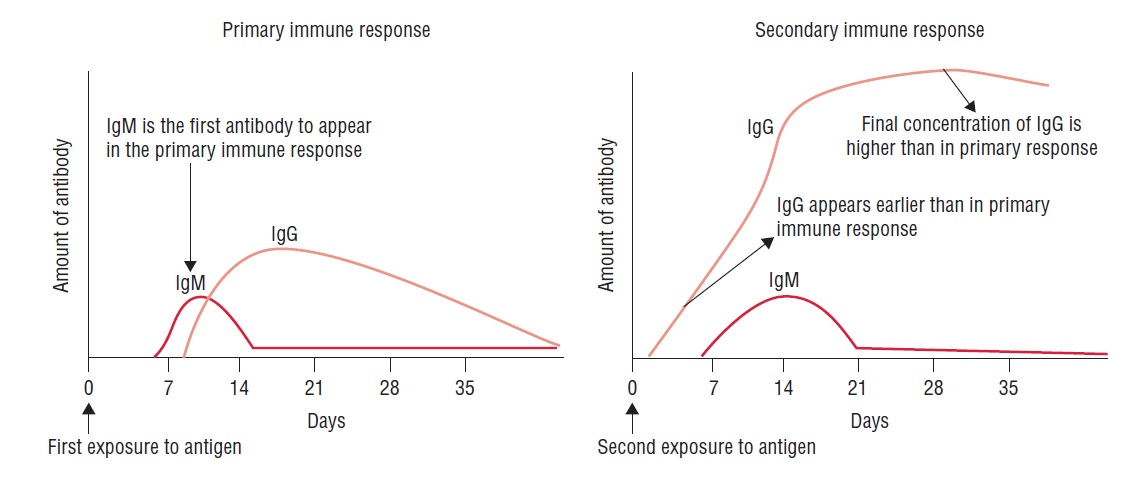The primary immune response (when you first get exposed) is different from the secondary (from the memory cells). In the primary response, different antibodies are used (mostly IgM). The secondary immune response mostly uses IgG antibodies. This secondary response is stronger and antibodies are detected for longer.
The term primary and secondary are slightly misleading in the sense that even in the first exposure to a disease you will develop a secondary response as highlighted in the nice graph below from this nice article.

I do not know the articles you read but one I have seen in nature described the phenomenon that the IgG antibodies (those from the secondary response) decline much quicker and patients become seronegative (they do not have any antibodies left in their blood serum) very quickly.
They only looked at the antibody levels so did not try and explain why this is happening. But they found that the immune response is much stronger in patients with symptoms compared to those without symptoms. This makes sense as the immune system needs a so-called secondary signal (inflammation etc.) to start an immune response otherwise it would constantly attack your own cells. This secondary signal is most likely much weaker if you do not have symptoms.
Their conclusion is:
The reduction in IgG and [..] antibody levels in the early convalescent phase might * have implications for immunity strategy and serological surveys. *(I have added the emphasis)
The reasoning I believe for the statements in the press that COVID might not cause immunity is that the low levels of IgG antibodies in the first exposure event might indicate the secondary immune response could not be sufficient to achieve immunity. Reasons could be that not enough Memory-cells are made or these are not as effective as they should be. But only time will tell. I would suspect that the immunity will heavily depend on whether a patient did show symptoms (had a strong second signal to the immune system) or not.
PS. (Just in case...) This does not mean a possible vaccination will be less effective than an actual infection because generally, these do not cause symptoms. In that case of vaccines so-called adjuvants deliver the second signal and inflammation etc. is not needed.
